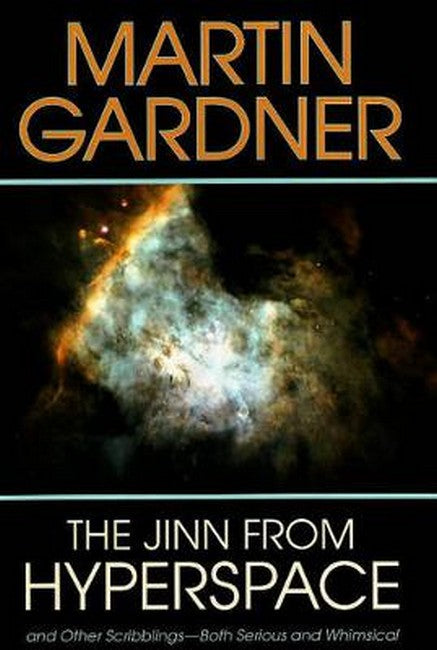Martin Gardner (1914 - 2010), the creator of Scientific American's "Mathematical Games" column, which he wrote for more than twenty-five years, was the author of almost one hundred books, including The Annotated Night Before Christmas, The Annotated Snark, Martin Gardner's Favorite Poetic Parodies, From the Wandering Jew to William F. Buckley Jr., and Science: Good, Bad and Bogus. For many years he was also a contributing editor to the Skeptical Inquirer.
Description
The False Memory Wars; The Sad Case of Father Shanley1; Penrose: The Road to Reality; Penrose: The Emperor's New Mind; Time-Reversed Worlds; The Ars Magna of Ramon Lull; The Banach-Tarski Paradox; Transcendental Numbers and Early Birds; A Defence of Platonic Realism; The Jinn from Hyperspace; Satan and the Apple; Blabbage's Decision Paradox; Professor Cracker's Antitelephone; Energy from the Vacuum?; PopCo; Four Letters; Is Beauty Truth?; Is String Theory in Trouble?; Do Loops Explain Consciousness?; Chesterton: The Flying Inn; Chesterton: Manalive; The Night Before Christmas; The Great Crumpled Paper Hoax; So Long Old Girl; Queen Zixi of Ix; The Enchanted Island of Yew; John Dough and the Cherub; The Magical Monarch of Mo; American Fairy Tales; Mother Goose in Prose; How the Oz Club Started; Sylvie and Bruno; Phantasmagoria; The Nursery Alice; Alice's Adventures Under Ground; The Two Alice Books.
""Martin Gardner's status as a legend of popular mathematics and science writing was secured long ago. If you know him chiefly as a recreational mathematician, you'll find this collection of writings an eye-opener. Gardner includes musings on homeopathy, false memory syndrome, G. K. Chesterton and Lewis Carroll among curiosities in physics and maths, harvested from essays, articles and even letters to newspaper editors. Clear, closely argued and entertaining, they are a fascinating insight into the breadth of interest and fecundity of the man, now in his 90s." --New Scientist "This collection, brimming with charm and wit, includes a fascinating range of articles originally published in such journals as Math Horizons, The Skeptical Inquirer and The New Criterion, as well as in Gardner's past books. The title story is a confabulation of satire, homage and mathematical puzzle that encapsulates the many themes and variations of this far-reaching book... Though readers might be put off by the breadth of subject matter, or wonder why a "serious" mathematical writer might trouble himself with The Wizard of Oz, Gardner fully validates all his interests with lively prose, appropriate humor and umbrage where needed." --Publishers Weekly

